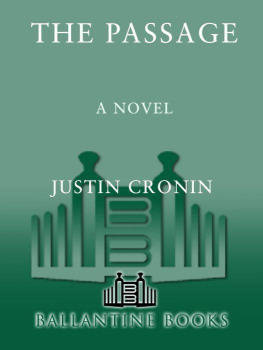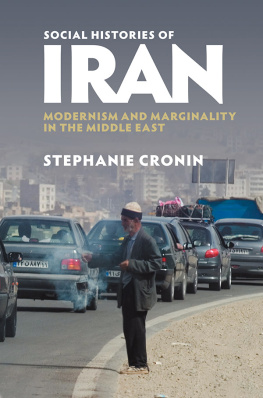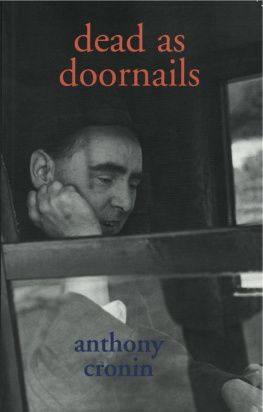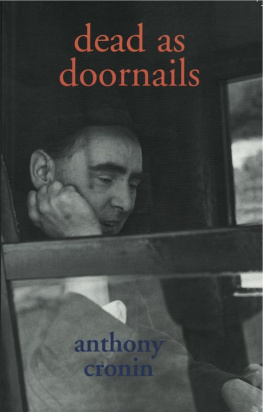Justin Cronin - The Summer Guest
Here you can read online Justin Cronin - The Summer Guest full text of the book (entire story) in english for free. Download pdf and epub, get meaning, cover and reviews about this ebook. year: 2004, publisher: The Dial Press, genre: Detective and thriller. Description of the work, (preface) as well as reviews are available. Best literature library LitArk.com created for fans of good reading and offers a wide selection of genres:
Romance novel
Science fiction
Adventure
Detective
Science
History
Home and family
Prose
Art
Politics
Computer
Non-fiction
Religion
Business
Children
Humor
Choose a favorite category and find really read worthwhile books. Enjoy immersion in the world of imagination, feel the emotions of the characters or learn something new for yourself, make an fascinating discovery.

- Book:The Summer Guest
- Author:
- Publisher:The Dial Press
- Genre:
- Year:2004
- Rating:5 / 5
- Favourites:Add to favourites
- Your mark:
- 100
- 1
- 2
- 3
- 4
- 5
The Summer Guest: summary, description and annotation
We offer to read an annotation, description, summary or preface (depends on what the author of the book "The Summer Guest" wrote himself). If you haven't found the necessary information about the book — write in the comments, we will try to find it.
The Summer Guest — read online for free the complete book (whole text) full work
Below is the text of the book, divided by pages. System saving the place of the last page read, allows you to conveniently read the book "The Summer Guest" online for free, without having to search again every time where you left off. Put a bookmark, and you can go to the page where you finished reading at any time.
Font size:
Interval:
Bookmark:
Justin Cronin
THE SUMMER
GUEST
THE DIAL PRESS
Contents
for Leslie
and
for Iris
Ill look for you in old Honolulu,
San Francisco, Ashtabula,
Yer gonna have to leave me now, I know.
But Ill see you in the sky above,
In the tall grass, in the ones I love,
Yer gonna make me lonesome when you go.
Bob Dylan, Youre Gonna Make Me
Lonesome When You Go
Prologue
N orth of Boston they followed the sea. A day in January, 1947: the carriage of their train was nearly empty. Just the three of them, the man and his wife with the little boy on her lap, and far ahead, a lone man in uniform, his head lolled forward in sleep. From the window they watched the rough-hewn coast slide by: the great slabs of ice, heaved and broken against the shoreline; the frozen, time-stilled marshlands; the rocky promontories fingering a winter sea. At intervals the conductor passed through, idly humming as he announced the names of the towns, his heavy steps sure despite the old rail-bed that made the car sway like a ferrys deck.
While Amy and the baby dozed, Joe rose to stretch his legs. Thirty-one years old: he had been a lawyer, and then a soldier, but now was neither one. He made his way forward through the train, three cars to the engine and back, then paused at the doorway to look down the carriage. The uniformed man sat with his chin propped on one hand, a thatch of brown hair hanging loosely over his forehead as he slept. He was just a kid, Joe saw, eighteen and a day; probably he had enlisted just as the war was ending and had never seen an hour of combat. His other arm was thrown about his duffel bag, which rested on the seat beside him. Had he ever looked like that, Joe wondered, so completely at ease, untouched by life? But then the sleeping soldier turned, extending one leg into the aisle, and Joe realized, with a jolt, that he was mistaken. Between the rows of seats, the boys left foot rested at a strange and careless angle: a prosthesis. The long hair: he should have known. Joe had grown such hair himself, in the hospital.
He returned to his seat. Amy was still sleeping, her head resting on a folded coat against the window, but the little boys eyes were open and looking about. Joe lifted him from his wifes lap and placed him on his own. The tang of urine and the thickness of the babys diaper told him he would soon need changing; before long he would begin to issue the first complaints, the barks and squeaks that burst forth randomly like the notes of an orchestra tuning up, a warning that would quickly gather into a wall of sound that seemed to Joe to communicate nothing less than a permanent cosmic sorrow. In any event, his wife would have to awaken soon. He jostled the little boy on his knee, singing a quiet tune under his breath, notes strung arbitrarily together from a dozen different songs. Youll like Maine, he whispered into the boys small, sweet-smelling ear. Theres a forest to play in, and a lake where we can swim and fish. Ill teach you, when youre old enough, all right?
The train swayed and clacked; Joe watched the landscape as they passed. Miles of open coastline, and then the small towns pressed close to the water, quick glimpses of life as the train skimmed the fences that guarded the houses and yards. They passed through a railroad crossing, gates down and lights flashing; by the roadside, despite the cold, a group of children were waving from the seats of their bicycles. The world from the train window opened and closed like this, like the pages of a book. A simple pleasure, Joe thought, reserved for the living: to sit with his son on his lap, beside his sleeping wife, on a train taking them away, into a new life they could only guess at.
When the baby began to fuss, Amy awoke to change him, and when she was finished they opened up their picnic basket: sandwiches and hard-boiled eggs, a thermos of coffee, cookies from the Italian bakery where they had shopped for years.
How long did I sleep? She yawned into her palm. I didnt know I was so tired.
They had been packing for days, finalizing their arrangements, saying their good-byes. Of course she would be exhausted.
At least an hour. Joe shelled an egg into a napkin on his knee. Sleep more if you want. You need your rest. Itll be a long ride yet.
They finished their lunch, and as they were packing it away, the conductor came through the car.
Portland, Portland is next. The accent of a true Mainer: not Portland but Paht-land. As a boy vacationing with his parents in Bar Harbor, Joe had wondered how anybody in their right mind could talk that waythough his own accent, he knew, was different only by degree. The conductor paused at their seats, his eyes scanning the little pocket for their ticket stubs. Portland for you folks?
Augusta. Joe had taken the stubs with him, when he had gone to look through the other cars. As he handed them to the conductor, he tilted his face, as he had learned to do, so that his good eye lined up with the glass one. The need to do this had troubled him at first, but it had soon become second nature; there was no other way to meet and keep a mans gaze.
We change there, he explained.
Augustas a good ways yet. The conductor considered the tickets without interest and returned them to their holders on the headrests. On Amys lap the baby gurgled contentedly, and the conductor reached down to tousle his hair with a large hand chapped red by the cold. Hes a quiet one, now. Like the train, do you, little fella?
How much longer to Augusta? Amy asked.
The conductor looked at his watch, a gold disk on a chain that he kept flat against his belly in his vest pocket. Ninety-three minutes. Could be longer with the snow. Nevah know this time of year.
The snow?
He clapped his watch closed. Coming down north of he-ah, what theyre saying.
Past Portland, the first flakes appeared, white streaks that skated by the train window like shooting stars. The houses, the trees, all faded under a fresh coating of white. The train veered inland; to the north and west, mountains rose out of the dense, whirling air. Joe felt the first stirrings of worry; he hadnt planned on snow. Stupid, but he had never once thought it. If they missed their connection, they would have to spend the night somewhere. Or, they might arrive too late in Waterville to drive the final fifty miles.
By the time they reached Augusta, it was after two. Joe waited on the cold train platform for their luggage while Amy took the baby inside. They had brought just a few bags with them; the rest would follow later, by truck: furniture and kitchenware, trunks of clothing and books and linens, even Amys piano. The days light seemed to drain away into the falling snow; already three inches had fallen. Joe gave the porter fifty cents to cart their bags into the station, where he found Amy seated on a long bench with the baby on her lap. Heat blazed from a roaring woodstove; the floor was slick with melted snow. Joe went to the ticket window to ask about the weather.
All trains still running. Behind the counter, the clerk, an older woman in a denim workshirt, was absently stamping paper. A lit cigarette hung from the corner of her mouth; the bright red of her lipstick seemed like the only spot of color in the entire state of Maine.
Is the train to Waterville on time, please?
Everythings late, with the snow. The woman lifted her eyes to look at him. Her stamper paused midair.
Good God.
It was a relief, he thought, when people were so surprised they could only be honest. And yet he had never learned quite what to say, beyond the simple facts. I was shot in the war, he explained.
Her gaze was even, unchanged, as was her voice when she spoke the sentence he had somehow known would come.
My boy was killed.
Where?
Next pageFont size:
Interval:
Bookmark:
Similar books «The Summer Guest»
Look at similar books to The Summer Guest. We have selected literature similar in name and meaning in the hope of providing readers with more options to find new, interesting, not yet read works.
Discussion, reviews of the book The Summer Guest and just readers' own opinions. Leave your comments, write what you think about the work, its meaning or the main characters. Specify what exactly you liked and what you didn't like, and why you think so.









